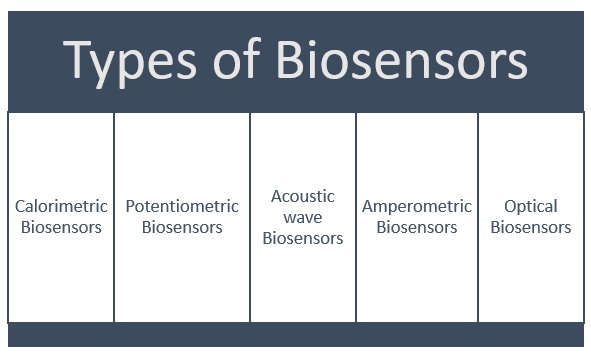Biosensors Assignment Help
Are you looking for help in the topic of Biosensors? Don’t have time to work for the given assignment? Contact the tutors at assignmenthelp.net and receive the desired assistance for your Biosensors assignment.
The combination of two terms ‘Bio’ and ‘sensor’ make Biosensor. Sensor is a diagnostic device that analyze a sample so as to detect the presence of a particular compound. Therefore, when combined with the concept of biology- a sensor that uses biological materials for the purpose of interaction with the analyte (compound that is to be detected) is termed as Biosensor. Therefore, Biosensor is a device that is made by the combination of biological component with a component of physicochemical detector to identify analyte.
A Biosensor comprises of two parts: a transducer and a Biological element that can be enzyme, antibodies, lectins, etc. The biological element connect with the analyte that is to be tested generating a biological response which is then converted to electrical signal by the transducer. Thus, flow of chemical information is converted into electrical signals by a Biosensors.
On the basis of interaction between the analyte and the biological material; Biosensors can be classified into two types:
Catalytic Biosensors: In this type of Biosensors, due to the interaction of analyte and Biological materials (mostly enzyme); analyte gets modified to form a new chemical molecule.
Affinity Biosensors: In this type of Biosensors, interaction of the analyte with Biological materials result in binding of analyte with the biological material.
Biosensor is recently introduced topic in science, specifically Bioinstrumentation. So not everyone is easily able to understand and grasp the entire information about this topic. Moreover, assignment on Biosensors can be tough if students fail to discover comprehensive and well-organized content. In case of any difficulty or complexity in writing provided assignment, students can choose our biosensors Coursework Writing Help. This will allow them to get in-touch with our tutors from the field of Bioinstrumentation. They will solve assignment related doubts providing answers within few hours of time.
Types of Biosensors
1. Calorimetric Biosensors: These Biosensors measure the change in temperature of the mixture that undergoes enzyme-analyte action (exothermic) thus inferring it in terms of analyte concentration in the mixture. The change in temperature is therefore detected by transducer. Hence, the amount of heat that is generated is proportional to the concentration of analyte and is proceeded accordingly.
2. Potentiometric Biosensors: In this case, ion-selective electrodes are used to convert biological reactions into electrical signals and this electrical signal are detected by the transducers.

3. Acoustic wave Biosensors: The surface of these biosensors are coated with antibodies that in turn binds to complementary antigen present in the mixture. The antibody-antigen binding leads to increased mass, dropping their vibrational frequency. Hence, the measured change is used to determine the amount of antigen present in the solution.
4. Amperometric Biosensors: These biosensors mainly function by the production of current and the application of potential between two electrodes, thus the magnitude of current being proportionate to substrate concentration.
5. Optical Biosensors: There are two main area of advancement in optical biosensors-catalytic and affinity reactions. The change in fluorescence or absorbance produced by the products of catalytic reactions and the change brought in the intrinsic properties of biosensor surface due to stocking of dielectric molecule.
Your Biosensors assignment will require more details. But for this you need to sit, spare time and do proper research, only than you can write the entire assignment in accurate manner. But when you are hardly able to manage time to conduct thorough study on this topic, we can help you out. Our online service is available all time. Hence, to get the detail on biosensors Assignment Help, contact our team.
Features of Biosensors:
- Specificity for an analyte.
- Bio-compatible, durable and easy to use device.
- Independent of factors like temperature, pH, stirring etc.
- It should be small and easily transportable.
- Linear response over valuable range of analytic component.
Application of Biosensor
- Medical and health field:
- Diabetes
- Artificial pancreas
- Insulin therapy
- Market potential
- Measurement of metabolites
- Monitoring General health care
- Screening diseases
- Industrial field:
- Bioreactor control
- Detecting pathogens
- Measuring carbohydrates, acids and alcohols in food.
- To check the process of fermentation
- Environment application:
- To check quality of air and water.
- To check the level of toxicity in water.
- To pick the traces of organophosphates from pesticides.
- Military application
- Analysis of Microbiology, bacterial and drug.
- Veterinary analysis and lot more.
Tutors at Assignmenthelp.net always give their 100% in providing accurate help and assistance to students. It is the main reason that this Assignment Help site has successfully fulfilled the requirements of maximum students seeking biosensor Assignment Help. With subject respective tutors, students are able to receive accurate solutions even for challenging and tough questions.


